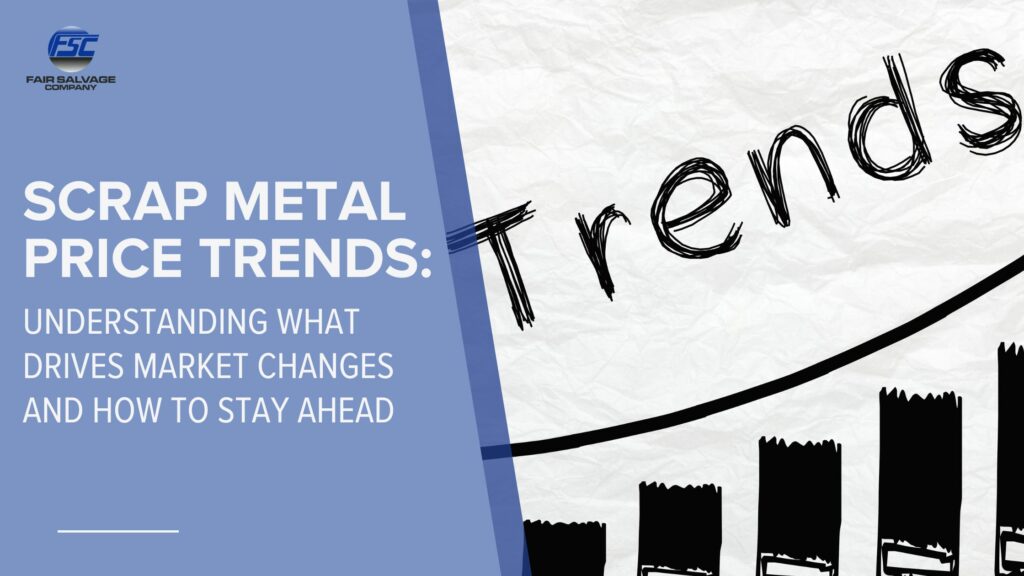Scrap Metal Price Trends: Why They Matter for Every Seller
If you’ve ever checked Fair Salvage’s current scrap prices and noticed the numbers change from week to week, you’re not alone. Many customers—farmers, contractors, and industrial business owners—wonder why scrap prices fluctuate and how to make the most of those changes.
The truth is, scrap metal price trends are shaped by a mix of global forces, local market conditions, and even the season. Whether you’re cleaning up old farm equipment, recycling construction scrap, or managing manufacturing waste, understanding these trends can help you sell smarter and earn more.
At Fair Salvage Company, our goal is to make these market shifts less confusing and more profitable for you.
What Drives Scrap Metal Price Trends?
Scrap metal pricing isn’t random. It’s influenced by several key factors that affect how much recyclers can pay—and when. Understanding these elements can help you time your sales for maximum return.
1. Global Supply and Demand
When industries like construction, automotive, and manufacturing are booming, the demand for recycled metals rises. That increased demand often leads to higher prices for materials like copper, aluminum, and steel.
But when demand slows—such as during global economic dips—prices tend to fall. It’s the same supply-and-demand principle that affects every commodity, from grain to gas.
2. International Trade and Tariffs
Scrap metal is part of a global market. Tariffs, trade restrictions, and international shipping costs all influence how much scrap is worth.
For example, if the U.S. places new export restrictions or if foreign buyers face higher freight costs, demand from overseas markets may drop—causing prices here at home to dip as well.
3. Currency Exchange Rates
When the U.S. dollar is strong, foreign buyers must spend more of their local currency to purchase American scrap. That can lower global demand and drive prices down domestically. Conversely, a weaker dollar can make U.S. scrap more attractive internationally, boosting prices.
4. Energy and Fuel Costs
The cost of transporting, melting, and refining metals directly impacts scrap pricing. When fuel or electricity costs rise, it affects recyclers and mills—ultimately influencing the payout you receive for your materials.
Seasonal Scrap Metal Price Trends
Believe it or not, the time of year can also affect what you earn for your scrap.
- Spring and Summer: Prices tend to rise as construction and manufacturing projects ramp up. These are the busiest recycling months—and often the most profitable times to sell.
- Fall: Demand can remain strong, especially in agricultural areas as farms clean out equipment and materials before winter.
- Winter: Scrap movement often slows due to weather, lower construction activity, and transportation challenges, which can temporarily lower prices.
At Fair Salvage, we see this pattern across our Clare, Chase, and Montcalm locations every year. Staying aware of these seasonal cycles helps many of our long-term customers plan their cleanups or container pickups around better price windows.
How to Monitor Scrap Metal Price Trends
While it’s impossible to predict every market shift, there are practical ways to keep a pulse on the industry:
1. Check Prices Regularly
Visit our pricing page for the most up-to-date scrap metal values in Mid-Michigan. We post transparent rates for copper, steel, aluminum, and other metals so you can plan your drop-offs or pickups with confidence.
2. Follow Industry News
Global events like supply chain disruptions, natural disasters, and even conflicts can affect pricing. For example, rising shipping costs or energy shortages can slow exports and drive local price drops.
3. Work with a Trusted Recycling Partner
Our team at Fair Salvage monitors market data daily, giving you honest, real-time insights into the best times to sell. Whether you bring materials to one of our yards or use our On-Site Scrap Container Program, we’ll help you make informed, strategic decisions about your scrap.
How Scrap Pricing Ties to the Circular Economy
Scrap metal recycling isn’t just about immediate profit—it’s part of a larger circular economy that benefits the environment and the economy.
In our article, How Scrap Metal Recycling Supports the Circular Economy, we explain how recycling metals helps reduce the need for new raw materials, cuts down on emissions, and conserves energy.
When you recycle with Fair Salvage, you’re contributing to that cycle—helping keep valuable materials in circulation while getting paid fairly for your effort.
A Real Example from the Field
Earlier this year, one of our longtime customers—a demolition contractor from Clare—called to ask if it was a good time to sell a large load of steel and copper scrap.
After reviewing market trends, our team advised waiting just a few weeks. When global copper demand picked up again, prices rose by nearly 10%. That patience paid off—the contractor earned hundreds more on the same material.
Stories like this are why we emphasize partnership, not just transactions. Our success is built on helping you scrap smarter and earn bigger.
Fair Salvage: Your Partner for Maximizing Scrap Value
We know that scrap pricing can feel unpredictable, but that’s where having a trusted partner makes all the difference. With over 40 years of experience in Mid-Michigan scrap recycling, Fair Salvage provides consistent communication, transparent pricing, and reliable service to keep your operations running smoothly.
From small loads of household metal to high-volume industrial scrap, our team will help you manage it efficiently—and profitably.
Ready to Make the Most of Today’s Scrap Metal Price Trends?
Timing matters, and so does who you work with. Partner with Fair Salvage to get honest guidance, fast service, and the best value for your materials.
Request a Quote today and see why Michigan businesses, farmers, and contractors trust us to keep their scrap operations moving forward.

